
Technology
11:16, 05-May-2019
Facebook's new tech at F8 2019
By Mark Niu
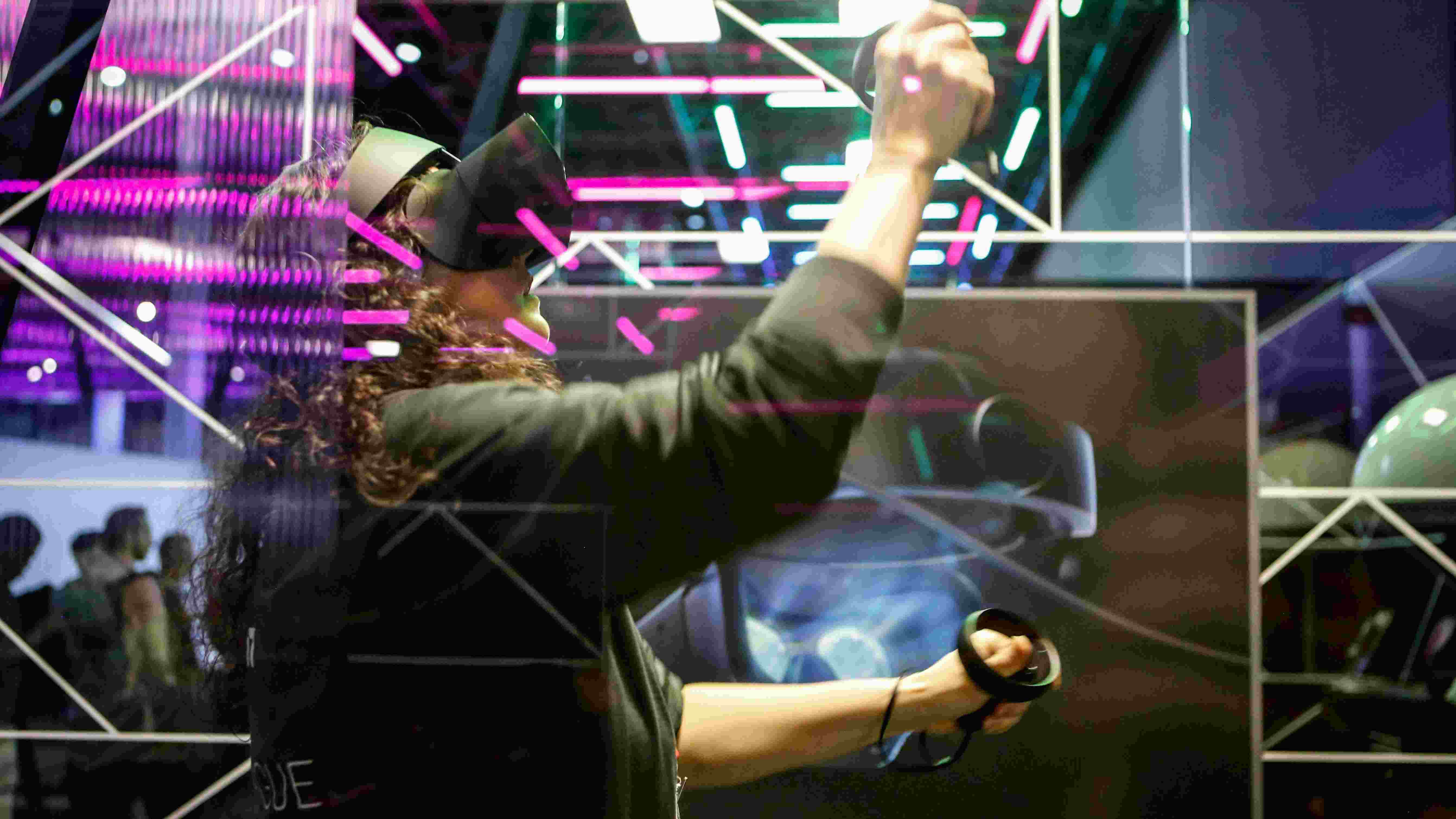
Facebook just wrapped up its annual developer conference known as F8.
While the company focused on privacy in light of recent data scandals, it also showed it was branching out beyond traditional social media.
That includes hardware.
Through its company Oculus, it unveiled two virtual reality (VR) headsets both priced at 399 U.S. dollars.
It was just a few years ago when most high-end VR headsets were priced at around 1,000 U.S.dollars.
So Facebook has certainly come a long way.
The first headset is the Oculus Rift S, which makes several improvements over the original Rift, including increased resolution and audio integrated into the headset.
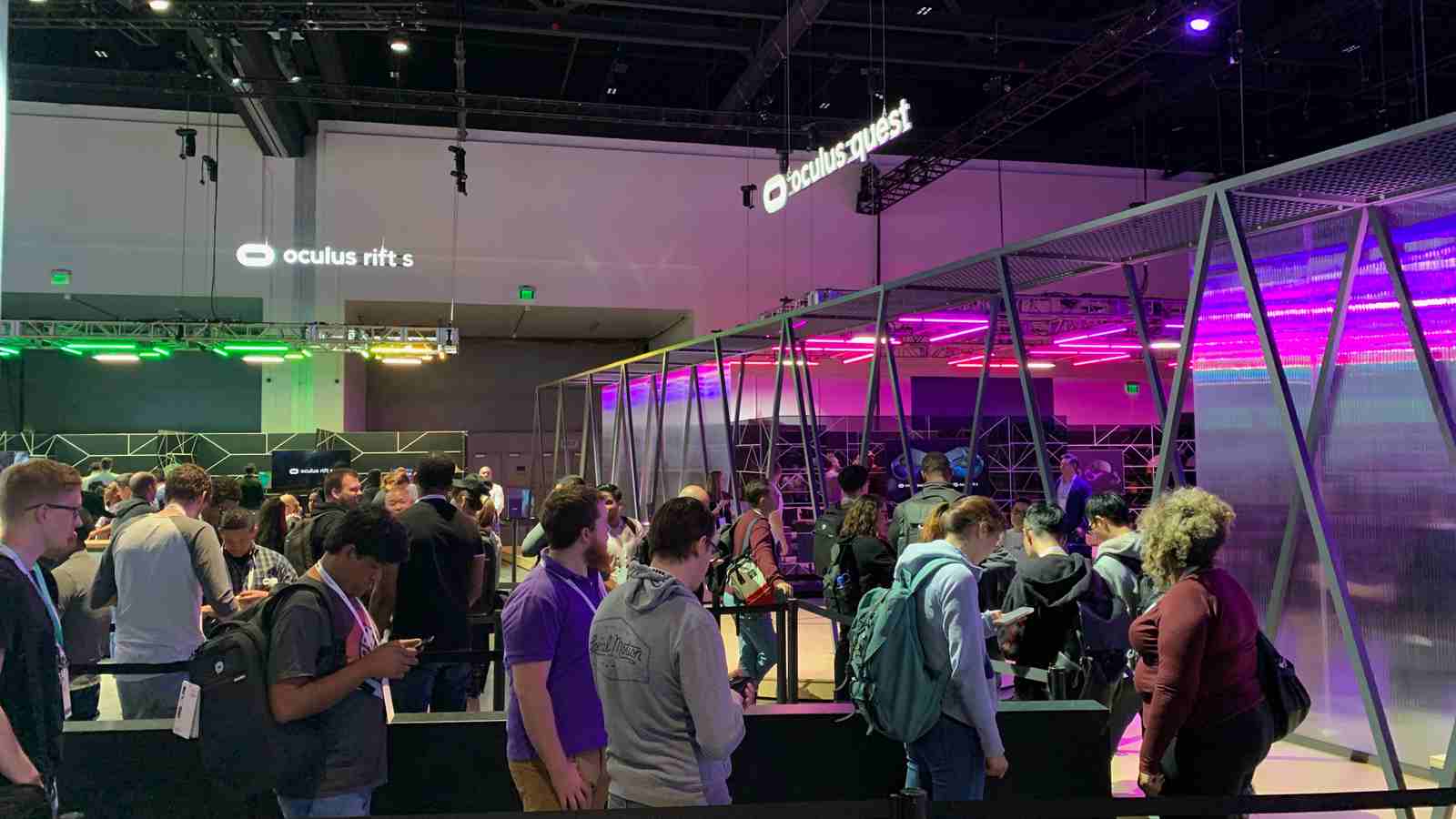
F8 attendees waiting to see the new Oculus headsets and Portal video calling device. /CGTN Photo
F8 attendees waiting to see the new Oculus headsets and Portal video calling device. /CGTN Photo
But perhaps the biggest change is that it has new inside-out tracking tech called Oculus Insight.
That means there's no longer a need for external motion sensors because five of them are built right into the headset. It can now do its own positional tracking.
But I decided to try out their other cutting-edge hardware that actually cuts the cord – Oculus Quest.
I think this one may end up being more popular than the Rift S. It's completely without any cords. And it is self-contained, that is, it doesn't need a PC or a gaming console. It's an all-one-VR system.
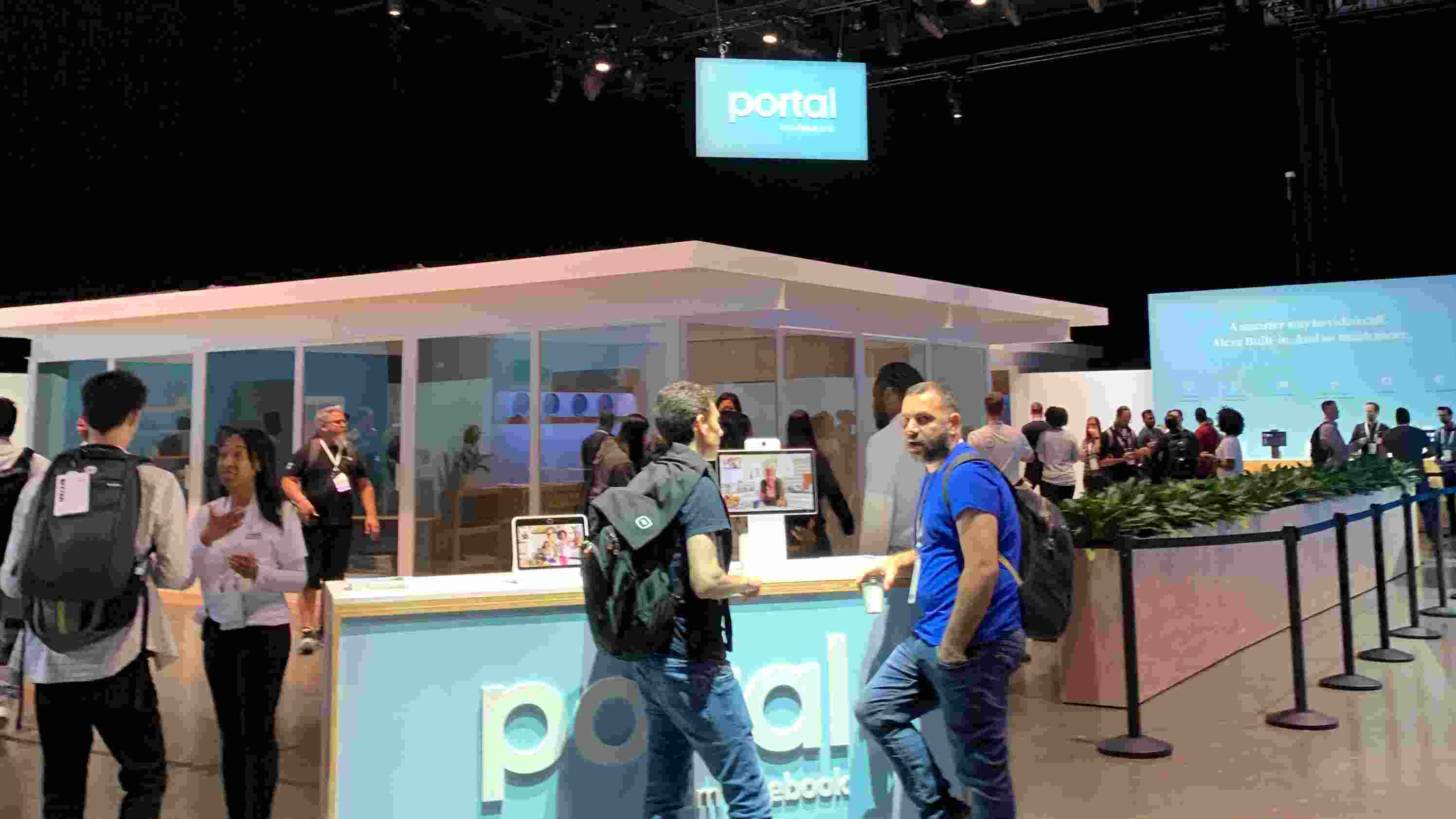
F8 attendees waiting to see the new Oculus headsets and Portal video calling device. /CGTN Photo
F8 attendees waiting to see the new Oculus headsets and Portal video calling device. /CGTN Photo
I strap it on, along with the controllers and enter a galaxy, far, far away.
Of course, I'm talking about their brand new Star Wars VR series and the game Vader Immortal.
Inside the VR world, I come face to face with the notorious Darth Vader.
Looking up at to the imposing villain with the intimidating voice, I have to admit my heart rate rises.
I listen to him give me instructions before I swing my lightsaber as droids begin to attack.
And when I say attack, I mean from all angles.
That's where the cordless headset comes in handy.
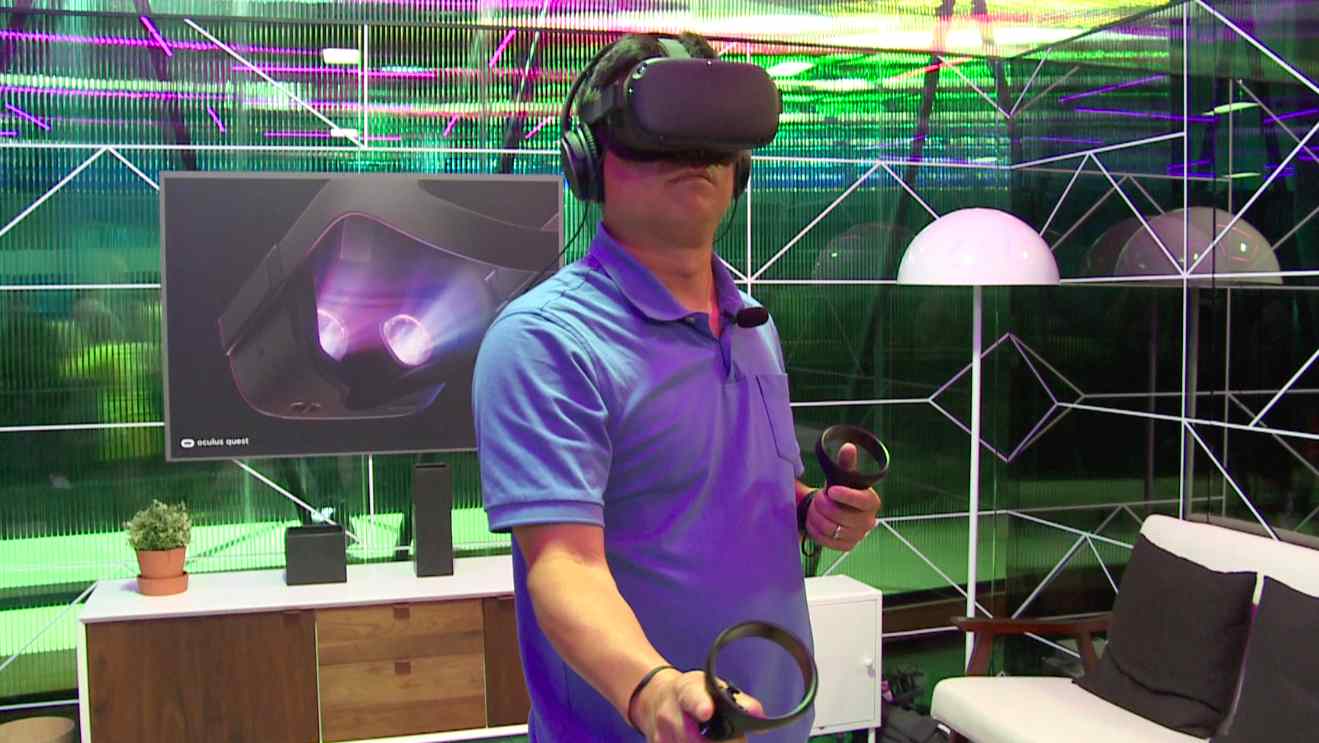
The photo shows Mark Niu using the Oculus Quest VR system. /CGTN Photo
The photo shows Mark Niu using the Oculus Quest VR system. /CGTN Photo
I am ducking, twisting and swinging in all directions in the VR world.
Although a Facebook assistant is watching me to make sure I don't run into any walls or people, I never have any problem since a grid lights up when I've gone too far.
When I'm done with the seven-minute adventure, I can't help but marvel at the world I've just entered, and how Facebook has truly gone outside the social media world.
"Quest just blows people away," said Facebook CEO Mark Zuckerberg during his keynote on stage. "It's the first time you can just walk around a VR space and fully interact with the people in it."
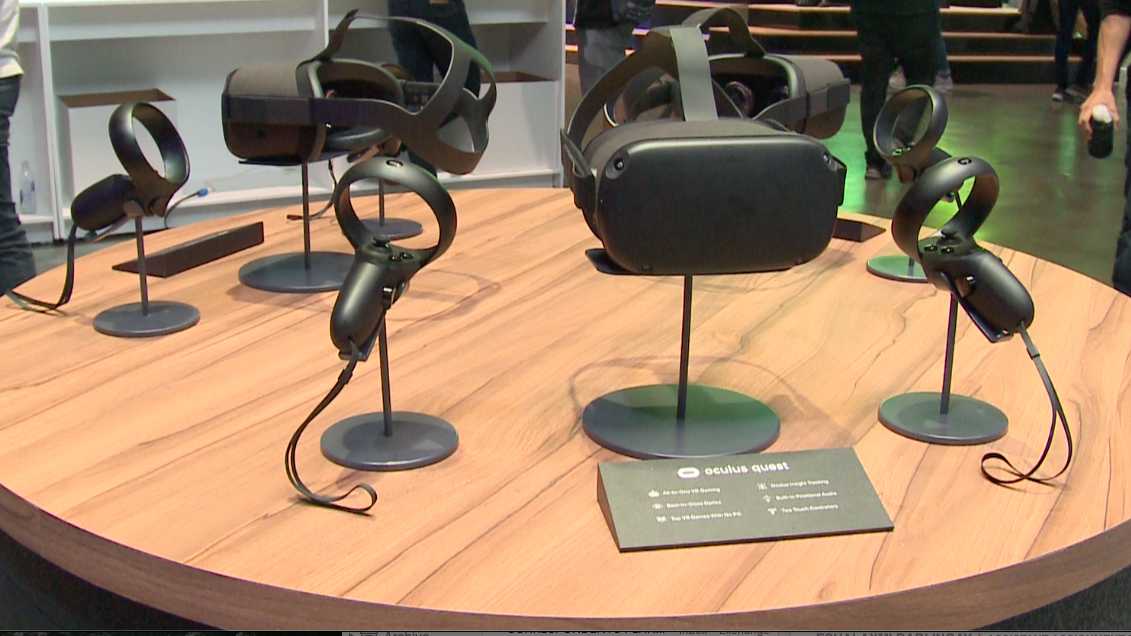
A closeup of the Oculus Quest Headset. /CGTN Photo
A closeup of the Oculus Quest Headset. /CGTN Photo
But that's not the only physical device that Facebook shows off at F8.
Another one that's breaking new ground is the video calling device Portal.
When I'm first introduced to it by John McCarthy, the head of product management for Portal experiences at Facebook, I have to say that I'm underwhelmed.
It looks like a mere speaker with a video screen.
McCarthy proceeds to use his voice to make the video call to two Facebook representatives who are in another room.
The two guys appear on the screen, but what happens next is impressive.
They guys move around the room and the camera shot follows.
It's so smooth, that I'm not sure whether another person is guiding the camera.
McCarthy explains that it has an extremely wide-angle lens.
But it's able to use camera vision and artificial intelligence to follow the action or whomever you choose.
Facebook actually consulted with Hollywood filmmakers to come up with its shot tracking capabilities.
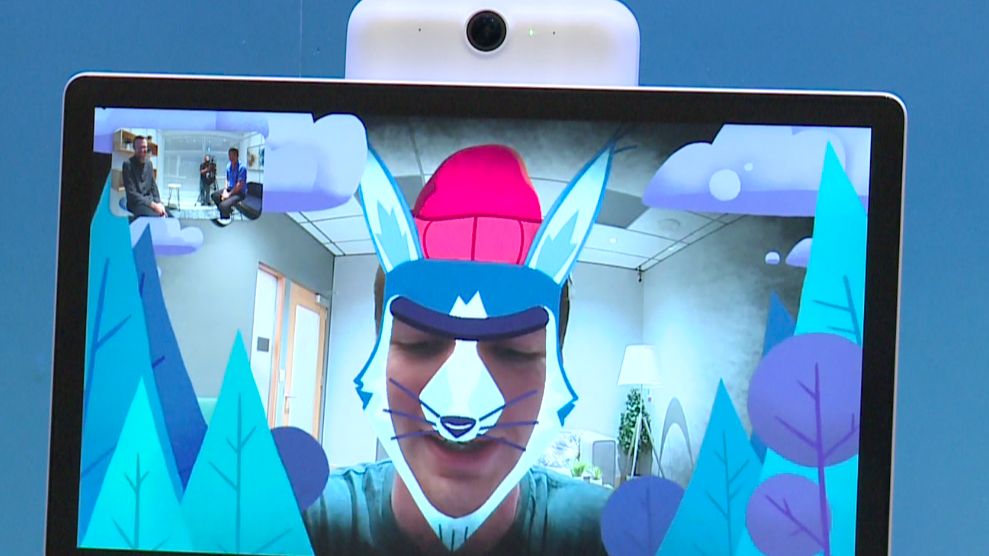
The picture shows Portal's Augmented Reality storytelling capabilities. /CGTN Photo
The picture shows Portal's Augmented Reality storytelling capabilities. /CGTN Photo
It now integrates with Facebook Messenger, What'sApp and Facebook livestreams, so you no longer have to rely on someone's shaky hands using a smartphone to livestream an event.
In addition, the audio is impressively clear. The guys in the video are just talking in a normal voice even though the device is across the room.
Another unique feature is storytelling.
On the Portal video call, you can actually read various children's books and have augmented reality (AR) effects appear on the screen while you talk to a child or your audience.
"Between the smart camera and smart sound, and the ability to add in new AR experiences into calls… really feels like you're with the person and takes that feeling of distance away from the experience," said McCarthy.
Similar AR effects have become extremely popular on another Facebook-owned app, Instagram.
And so popular have camera effects become that Facebook also showed off its own Spark Augmented Reality Studio.
It allows developers to easily create augmented reality effects for both Instagram and Facebook.
Even though it's the world leader in social media, Facebook is branching out into AR, VR, and hardware in hopes of becoming just as dominant in those tech markets too.

SITEMAP
Copyright © 2018 CGTN. Beijing ICP prepared NO.16065310-3
Copyright © 2018 CGTN. Beijing ICP prepared NO.16065310-3